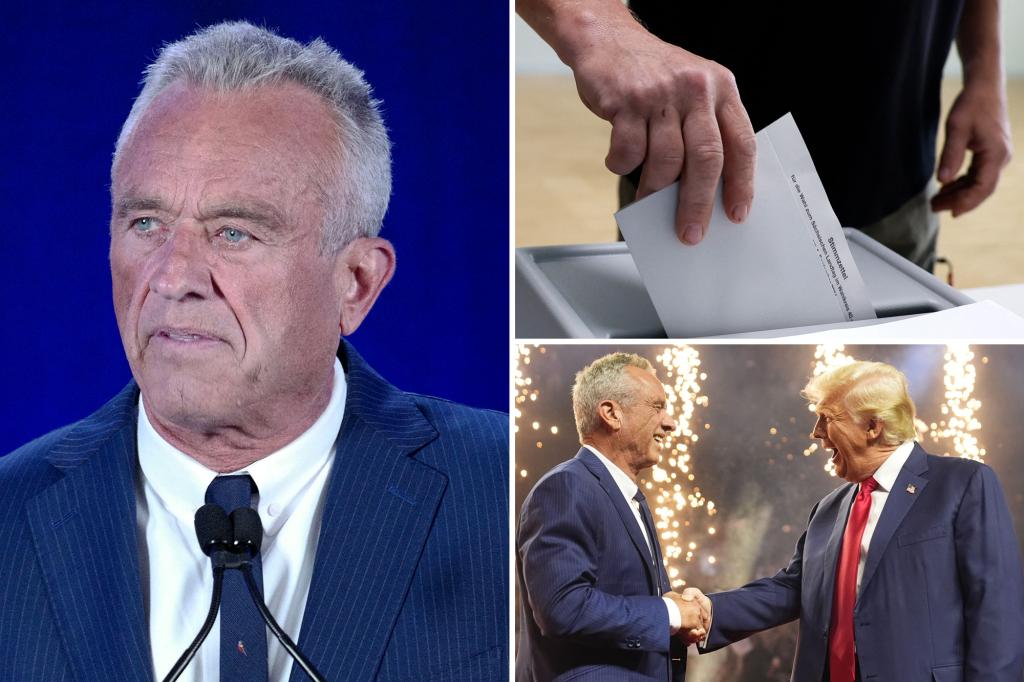Robert F. Kennedy Jr. has filed a lawsuit against the North Carolina election board in an effort to have his name removed from the 2024 presidential election ballot, after announcing his decision to drop out of the race and endorse former President Donald Trump. The lawsuit, filed in the Wake County Superior Court, claims that the board’s refusal to remove the We the People party, which nominated him, violates state election law and his freedom of speech. Despite this legal action in North Carolina, Kennedy’s lawyer also sought to have his name reinstated on the ballot in New York, where he faced challenges due to questions about his residency in the state.
Kennedy had been fighting to keep his name on the New York ballot before ultimately being barred from appearing on it. He was also facing similar challenges in other states, such as Oregon, where he submitted his candidate filing before deciding to withdraw from certain battleground states like Maine. The North Carolina election board had initially voted 3-2 to reject Kennedy’s request to be removed from the ballot, with the majority of counties in the state already in the process of printing ballots to be sent out by September 6. The decision to reprint these ballots would come at a significant cost, according to Board Executive Director Karen Brinson Bell.
Despite his efforts to withdraw from the race, Kennedy’s residency status has been a contentious issue in multiple states. His lawyer has argued that his identity as Robert F. Kennedy Jr. is well-known and would not be confused regardless of his listed residence. Kennedy had been polling at around 3% in North Carolina, and his decision to drop out of the race has raised concerns about the cost and logistics of changing the ballots at this stage of the election cycle. Some board members have expressed frustration with what they perceive as a farcical episode and have criticized Kennedy for deceiving voters with his decision to drop out of the race.
The legal battle over Kennedy’s presence on the ballot highlights the complexities of managing election processes, especially when candidates drop out of races after ballots have already been printed. The logistical challenges of potentially reprinting millions of ballots in North Carolina and other states where Kennedy had filed as a candidate raise questions about the cost and feasibility of accommodating last-minute changes. The outcome of Kennedy’s lawsuit in North Carolina, as well as the continued legal battles regarding his candidacy in other states, will likely have implications for future election processes and the regulation of ballot access for candidates. Ultimately, this case sheds light on the intricate legal and logistical considerations that election boards must navigate in order to uphold the integrity of the electoral process.


